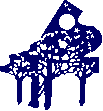Exclusion controversy
In 1991, trans woman Nancy Jean Burkholder was asked to leave the festival. [20] [21] This was retroactively justified by the instatement of a "womyn-born-womyn" policy, as named by Vogel. [22] [23] Vogel stated in 2013 that Michfest was intended for "womyn who at birth were deemed female". [6] The practical effect was that trans women were excluded from the festival, which became the subject of increasing criticism.
In 1992, Burkholder had a survey circulated at Michfest that asked, "Do you think male-to-female transsexuals should be welcome at Michigan?" [24] Although the sample was not "randomly selected", the results were interpreted as indicating that the greater number of those who attended MWMF would be against the exclusion of transsexual women, and "strongly suggest[ed] that the majority of Festigoers would support a 'no penis' policy that would allow postoperative male-to-female transsexuals" to attend Michfest. [24] At the 2000 event, staff gave arrivals a sheet saying that the festival may deny "admission to individuals who self-declare as male-to-female transsexuals or female-to-male transsexuals now living as men (or [ask] them to leave if they enter)." [20]
Critics argued that the womyn-born womyn intention constituted discrimination against transgender people and in 1995, Camp Trans, an annual protest event held concurrently with Michfest that operated adjacent to the festival venue, was launched. [25] [26]
In a 2005 interview with Amy Ray, Vogel defended the intention, stating that "having a space for women, who are born women, to come together for a week, is a healthy, whole, loving space to provide for women who have that experience. To label that as transphobic is, to me, as misplaced as saying the women-of-color tent is racist, or to say that a transsexual-only space, a gathering of folks of women who are born men is misogynist. I have always in my heart believed in the politics and the culture of separate time and space." [27] In a 2006 press release, Vogel stated that "we strongly assert there is nothing transphobic with choosing to spend one week with womyn who were born as, and have lived their lives as, womyn." [26]
Trans–bi activist Julia Serano, writing in 2007, criticized Michigan's policy as transmisogyny and pointed to a double standard: trans men were allowed at the festival, but trans women were not; in effect, this meant that trans men were treated as if they were women. She accused Michigan's policy of being inherently sexist against women and going against the very idea of a women's music festival, rebutted various statements put forth by Michfest in support of their policy, and described the preventing of pre-op trans women as phallocentric. [23]
In 2013, transgender activist Red Durkin launched a Change.org petition asking performers to boycott Michfest until the womyn-born womyn intention was abolished. [28] In response, Vogel stated that "I reject the assertion that creating a time and place for WBW to gather is inherently transphobic. This is a false dichotomy and one that prevents progress and understanding." [29] Shortly after the petition was launched, the Indigo Girls announced that 2013 would be their last year at the festival while the intention was in place, releasing a statement that "we strongly feel that the time is long overdue for a change of intention, to one that states very plainly the inclusion of Trans Womyn." [30] Another performer, Lovers, expressed their opposition to the intention but chose to perform in 2013 anyway. [31] They released a statement arguing that "MWMF responds not to external, but internal pressure, and we believe that ultimately, the women who attend the festival are the ones who will decide its future." [32]
In 2014, LGBT advocacy group Equality Michigan boycotted Michfest. [7] The boycott was joined by the Human Rights Campaign (HRC), [8] GLAAD, [9] the National Center for Lesbian Rights (NCLR), and the National LGBTQ Task Force. Michfest accused the boycott of being "based on misrepresentations, purposeful omissions, and selective editing of prior Festival statements on this issue," [33] with Vogel referring to the boycott as "McCarthy-era blacklist tactics". [34] The NCLR and National LGBTQ Task Force would later withdraw their support for the boycott, as they felt it would not be "ultimately productive" in realizing its objective stating, "We have not abandoned our efforts to work for a fully inclusive Michfest. Our goal is a Michfest that fully welcomes Trans women." [35]
Protests against the intention resulted in criticism of artists who had performed or been invited to Michfest. Bitch, of the band Bitch and Animal, attracted criticism for choosing to play at MWMF, resulting in the Boston Dyke March canceling an appearance by her in 2007, [36] [37] and she was also pulled or dis-invited from several other music festivals. [38] Members of The Butchies and Le Tigre claimed to have been "verbally attacked, endlessly harassed and physically threatened" for deciding to play at the festival. [39] In October 2013, filmmaker Sara St. Martin Lynne was asked to resign from the board of the Bay Area Girls Rock Camp for attending Michfest. [40]
Michfest also had the stated intention that attendees' gender should not be challenged, [22] [a] and it was reported that transgender women attended the festival without revealing their status. [41] This approach by the festival was criticized as equivalent to "Don't ask, don't tell" by Emily Dievendorf of Equality Michigan, [42] Riki Wilchins of GenderPAC, [43] and Julia Serano. [23]

